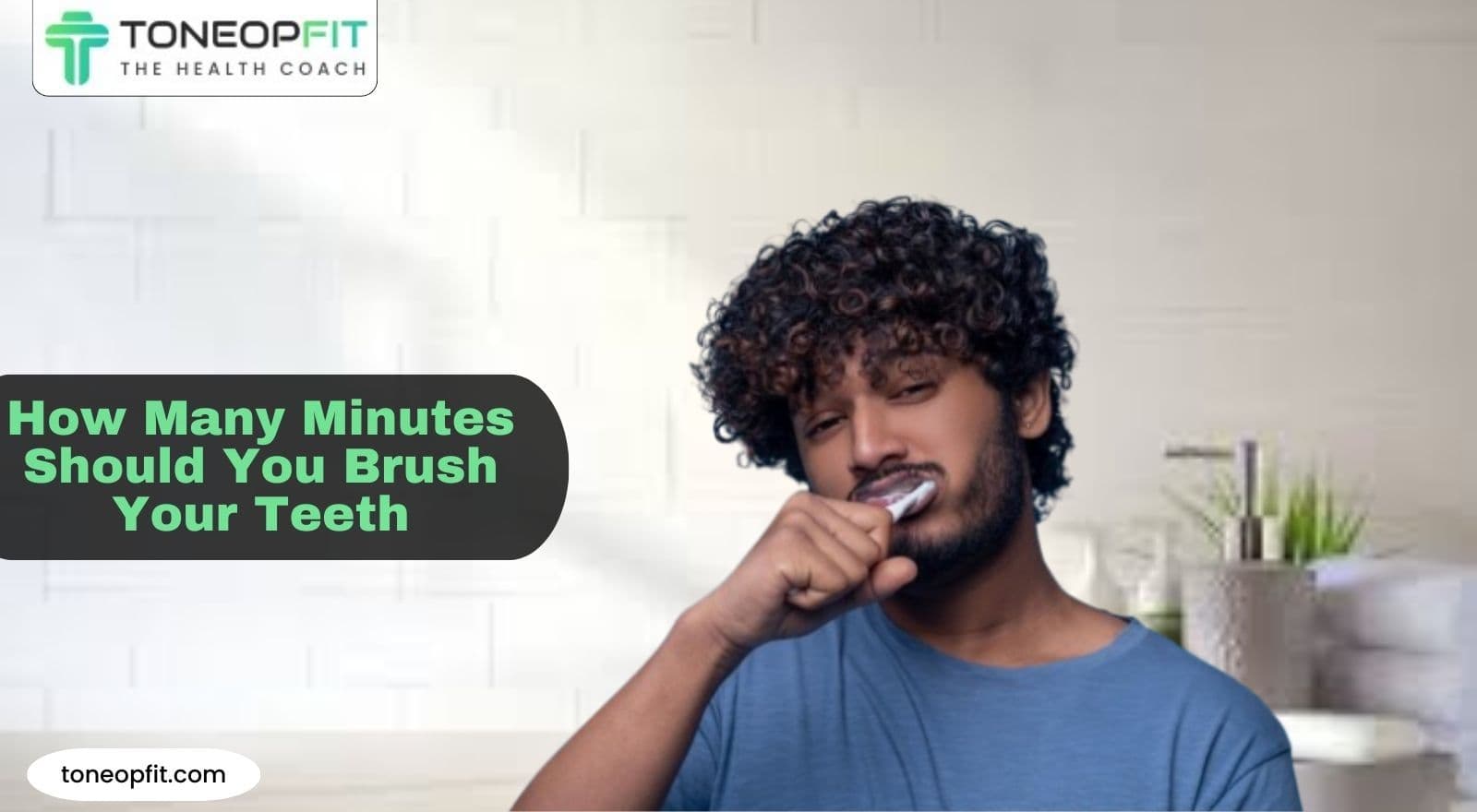Good oral hygiene starts with regular brushing. A healthy smile and general well-being depend on maintaining proper dental hygiene. You can keep your smile looking its best by brushing and flossing your teeth every day. One of the most basic dental care routines is regular brushing. Brushing helps avoid cavities, gum disease, and foul breath by removing food particles, bacteria, and plaque from your teeth and gums.
To effectively remove plaque and prevent cavities and gum disease, the American Dental Association (ADA) advises brushing twice a day for at least two minutes. All tooth surfaces—the fronts, backs, chewing surfaces, and gum lines—can be thoroughly cleaned during this time. Use a timer or a two-minute song to make the most of your brushing routine and ensure you're giving your teeth the care they need. A bright, healthy smile can only be attained with time, consistency, and expertise.
Let us dive into this blog to learn how many times you should brush your teeth in a day, its benefits and if you can brush your teeth thrice a day.
Table Of Contents
1. How Many Times A Day Should You Brush Your Teeth?
2. Can We Brush Our Teeth 3 Times A Day?
3. Benefits Of Brushing Two To Three Times A Day
4. Expert’s Advice
5. The Final Say
6. FAQs
8. References
How Many Minutes Should You Brush Teeth And How Many Times A Day Should You Brush Your Teeth?
The Indian Dental Association (IDA) recommends brushing your teeth twice a day for two minutes, morning and evening, using a soft toothbrush. In addition to brushing, it is important to clean between teeth at least once a day. Brushing or flossing between teeth helps remove plaque and food particles that often get stuck below the gum line and between teeth. Floss, a toothpick, or other interdental cleaners, such as water floss. Brushing helps remove plaque and food particles from your teeth. Bacteria can accumulate on your teeth or gum line if you neglect this procedure too frequently, raising your risk of cavities and other dental conditions.
You might notice a sticky white film that forms on your teeth. Plaque is a film that contains bacteria. Acids produced by the bacteria in plaque damage your tooth enamel after a sweet meal or snack. The hard outer layer covering the teeth is called enamel. Over time, acids destroy tooth enamel, which can lead to cavities. Tartar is created when the plaque that is still on the teeth solidifies. When tartar builds up on the teeth, it is harder to clean. When tartar builds up on the gums, it can cause inflammation, leading to gum disease.
The Indian Dental Association recommends brushing your teeth for 2 minutes twice a day for at least 2 minutes each time and cleaning all teeth. Factors can affect how well you brush, and recent research suggests that when it comes to oral health, how you brush may be more important than how often you brush. So, here is what you need to remember:
1. Toothbrush
If you have a toothbrush that doesn't fit your mouth, brushing more often won't help. It may harm your teeth, enamel and gums. Make sure the toothbrush you choose fits your mouth properly in terms of size and shape so you can easily reach molars that are difficult to reach. A brush that's too big can damage your gums. Generally, a soft toothbrush is best for your teeth, as a medium to stiff bristles can be too harsh on your gums and enamel. It’s also important to replace your toothbrush every three months or when it wears out to maintain its effectiveness.
2. Brushing Technique
Poor gym technique ruins your efforts. The same goes for brushing your teeth. Simply brushing your mouth quickly isn’t enough to remove bacteria and plaque! Regarding the brushing technique, the ADA recommends using a 45-degree angle, brushing gently back and forth in short strokes to ensure that all surfaces are brushed. It’s also important to remember to brush your tongue, as bacteria can build up between your taste buds and other crevices, causing bad breath and potentially more severe problems.
3. When Brushing Your Teeth
The best way to deal with plaque and prevent cavities is to brush immediately after eating or drinking. However, it depends on what we eat or drink. Brushing immediately after eating is to prevent stomach acid attacks. However, this only works if the acid has yet to start to attack your tooth enamel.
For example, if you have just eaten something very acidic, such as citrus fruits, the stomach acid attack will likely start in earnest when brushing your teeth. This is a problem because acidic foods and drinks weaken tooth enamel, and brushing before the enamel has time to harden can eventually remove the tooth. It is preferable to wait 30 minutes after ingesting acidic meals and beverages before cleaning your teeth in order to avoid damaging your enamel. This will allow the enamel to harden again and be less susceptible to damage when cleaned.
Also Read: How To Stop Smelling Bad? 10 Causes of Body Odour, Prevention and Tips
Can We Brush Our Teeth 3 Times A Day?
Yes, brushing your teeth thrice daily is good for oral health. The Indian Dental Association recommends at least twice daily, but brushing after every meal is also ideal for optimal oral health. Brushing after every meal is the perfect balance for many people, allowing you to clean your mouth thoroughly. Within minutes after eating or drinking, food particles and germs can build up on your teeth.
If you have invisible braces, you should brush your teeth more often to prevent food particles from getting stuck in the braces. If you eat many sweet foods or drink thick liquids, brushing your teeth more often can help reduce your risk of cavities and discolouration. Don't be afraid to add brushing to your routine. If you don't clean, plaque and cavities can build up, eventually leading to cavities and other dental problems.
In addition to brushing your teeth three times a day, it's essential to floss daily and use an antibacterial mouthwash once a day. This helps remove food particles stuck between your teeth and gums, and the mouthwash kills bacteria in your mouth and reduces bad breath.
Benefits Of Brushing Two To Three Times A Day
Brushing your teeth 2-3 times a day can have the following benefits:
1. Improved Oral Health
Brushing your teeth three times a day can significantly improve your oral health. Frequent brushing lowers the risk of cavities, gum disease, and foul breath by removing plaque and bacteria from the surface of your teeth. After every meal, brushing helps get rid of food particles, which can help stop dangerous bacteria from growing.
2. Stronger Teeth
Brushing your teeth three times a day also helps strengthen them. Fluoride, a mineral found in toothpaste, fortifies tooth enamel and guards against cavities.
3. Fresh Breath
Fresh breath is among the most obvious and known advantages of brushing your teeth three times a day. Frequent brushing aids in getting rid of bacteria and food particles that can lead to foul breath.
4. Prevents Stains
Tooth discolouration can be avoided by brushing your teeth after consuming meals or beverages that discolour them. Foods like coffee, tea, and red wine can stain your teeth if not removed immediately.
5. Reduces The Risk Of Gum Disease
Gum disease is a common and the most prevalent oral health issue that, if left untreated, can have serious consequences. By eliminating plaque and bacteria from the gum line, regular brushing reduces the risk of gum disease.
6. Overall Health Benefits
Maintaining good oral hygiene is associated with overall health benefits. Numerous systemic disorders, such as diabetes, heart disease, and respiratory infections, have been connected to poor dental health.
7. Set A Good Example
Brushing your teeth thrice daily sets an excellent example for others, especially children. Good oral hygiene habits can inspire those around you to do the same.
Also Read: Why Is The Skin Under Your Armpits Dark? 9 Causes, Vitamin Deficiencies, and Home Remedies You Need!
Expert’s Advice
Brushing your teeth three times a day is not that often, but it is an excellent way to maintain good oral hygiene. Regular brushing helps remove plaque, prevents cavities, and keeps your gums healthy. While brushing your teeth regularly is essential to good oral hygiene, simply brushing twice daily won’t get you all clean. Staying hydrated is essential to maintaining good oral health. It is also ideal to clean your tongue to freshen your breath. The toothbrush you use, how you brush, and when you brush also affect your oral health.
Health Expert
Lavina Chauhan
The Final Say
You can lower your risk of cavities, gum disease, and other oral disorders by brushing your teeth twice a day for two minutes each time. Brush selection, toothpaste, and flossing, following the Indian Dental Association’s recommendations for brushing techniques, can also help promote good dental health. If you have any questions or concerns about when and how to brush your teeth, consult your dentist.
FAQs
1. Is it OK to brush your teeth 1 times a day?
The majority of dentists advise cleaning your teeth at least twice a day, while some experts claim that brushing once a day is sufficient to preserve oral health. Two times a day of brushing can help: Lower the risk of cavities by 50%, eliminate stains and food particles, avoid foul breath, clean your teeth of food and plaque, and get rid of dangerous bacteria.
2. How long should you brush your teeth?
Some people spend 20 seconds brushing their teeth. Others brush for 3 minutes or more. The time you spend brushing your teeth is important. Brush your teeth twice a day for two minutes each time. It takes less than two minutes to clean your teeth.
3. Is there a difference between brushing once a day and brushing twice a day?
If you brush only once a day, food particles will build up in your mouth and remain in your mouth for about 24 hours until you brush again. Essentially, you are allowing bacteria to sit in your mouth overnight, which can lead to a number of dental problems.
References
- https://www.mayoclinic.org/healthy-lifestyle/adult-health/expert-answers/brushing-your-teeth/faq-20058193#:~:text=Brush%20your%20teeth%20twice%20a,and%20plaque%20off%20your%20teeth.
- https://hindi.news18.com/news/lifestyle/health-how-many-times-you-should-brush-your-teeth-in-a-day-expert-tips-to-improve-oral-health-danto-ko-saaf-karne-ka-tarika-6551321.html#goog_rewarded
- https://health.clevelandclinic.org/how-often-to-brush-your-teeth
- https://www.colgate.com/en-in/oral-health/brushing-and-flossing/why-brush-your-teeth-twice-a-day
- https://www.distinctivedentistry.com/blog/times-when-brushing-a-third-time-per-day-make-sense/#:~:text=Brushing%20your%20teeth%20three%20times,of%20tooth%20decay%20and%20cavities.
- https://www.smilevenuedental.com/is-brushing-teeth-3-times-a-day-too-frequent/
- https://clintondentalcenter.com/is-brushing-your-teeth-three-times-a-day-bad/
- https://www.drbryantdmd.com/blog/2021/1/27/how-often-should-i-brush-my-teeth/
- https://familydentistryofharrisburg.com/how-many-times-should-you-brush-teeth/
About ToneOp Fit
ToneOp Care is the ultimate destination for high-quality nutraceutical supplements and ayurvedic products in India! We are proud to offer a significant range of products designed to support your overall health and well-being, including weight loss, muscle gain, immunity, skin and hair care, and women's health. All our products are manufactured in India using the latest technology and facilities, ensuring the highest quality standards.










































